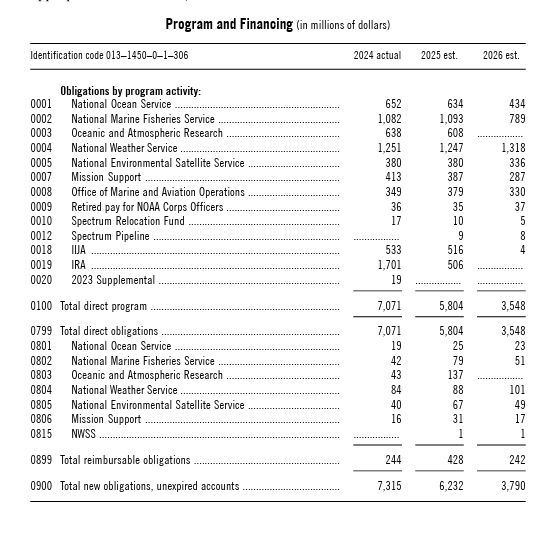In reversal, OSC now says agencies can fire probationary feds for almost any reason
The Office of Special Counsel, operating under new leadership, now says it believes agencies do have the authority to fire their probationary federal employees — for virtually any reason and at any time.
In a reversal of its own legal position from earlier this year, OSC argued in an amicus brief filed Wednesday afternoon that current federal regulations give agencies broad discretion to terminate probationers “with very limited restrictions on the reasons for termination.”
OSC’s brief, filed with the Merit Systems Protection Board, argued that agencies’ terminations of probationary employees, in response to the Office of Personnel Management’s guidance, were in compliance with statutory and regulatory requirements, and therefore do not constitute a prohibited personnel practice.
Current federal regulations state that agencies should terminate employees who fail to fully demonstrate their qualifications for continued employment, on the basis of either performance or conduct.
In its amicus brief, OSC said it believes those regulations mean agencies should screen out probationary employees for any reason the agency believes the employee is unsuitable for the competitive service.
“The agency may even be at fault for the probationer’s lack of demonstration of qualification or for the agency’s inability to assess work performance or conduct — perhaps because the agency lacks adequate recordkeeping or examination procedures — but this does not create any rights for the probationer and places the agency under no obligations to the probationer,” OSC wrote.
OSC, the federal agency in charge of policing prohibited personnel practices, has received more than 2,000 complaints on the mass terminations of probationary employees that took place earlier this year at the direction of the Trump administration. The probationary employees alleged that the mass terminations, made on the basis of “performance,” were unlawful.
In April, the Washington Post reported that OSC had informed the thousands of fired probationary workers who had filed complaints that it would not investigate their cases. OSC declined to comment on the open cases, citing internal policies forbidding the agency from doing so.
OSC said in its amicus brief, however, that agencies may be in violation of federal regulations — but rather than the violation stemming from too many employees being fired, it believed agencies were not firing enough probationary employees.
“Agencies appear to have failed to abide by the regulatory mandate to use the probationary period as a tool to screen out inadequate or unsuitable probationers,” OSC wrote. “Indeed, these violations have been ongoing and systemic for a very long time, and petitioners’ request for relief would likely compel agencies to continue these violations.”
Wednesday’s amicus brief marks a complete reversal of OSC’s earlier position on probationary employees before the MSPB. Former Special Counsel Hampton Dellinger, the then-leader of the OSC, said at the time that he believed agencies’ firings of probationary employees violated the law. In February, President Donald Trump fired Dellinger, leading to a short-lived legal battle that resulted in Dellinger resigning from his position at OSC in March and withdrawing from his lawsuit against the Trump administration.
OSC, which is normally considered an independent federal agency and is usually headed by a senior official with no other government duties, is now led in an acting capacity by U.S. Trade Representative Jamieson Greer. Charles Baldis, former senior counsel for the Senate Judiciary Committee, is currently managing the investigative body on Greer’s behalf. No OSC attorneys’ signatures, other than Baldis’, appear on the amicus brief sent to MSPB Wednesday afternoon.
“OSC had previously taken a position that we now believe to be wrong,” Baldis said in an interview. “We have switched that position, and we thought it was important to clarify that we believe this is the correct legal interpretation.”
In late February, under Dellinger’s leadership, OSC began challenging the mass firings of federal employees who had either been newly hired into government, or who had recently changed positions. OSC took on a number of cases from terminated probationary employees and turned to MSPB to request various stays while investigations continued. MSPB issued multiple stays, which have since expired.
“The legal arguments that were made as part of those MSPB stays are something that we looked into quite deeply,” Baldis said. “They seem plausible at first blush, but once you start digging, it’s not consistent with Congress’ intent when they passed the Civil Service Reform Act in 1978 … We didn’t think that was going to be a viable position anymore, so we have reversed that position.”
It’s unclear how MSPB will respond to OSC’s brief this afternoon. MSPB has a lack of quorum, with only MSPB Acting Chairman Henry Kerner currently serving. MSPB Member Cathy Harris is not currently working in her position as a lawsuit over Trump’s attempted firing of Harris continues.
OSC’s brief this week also comes after Trump signed an executive order in April to create more stringent requirements for federal employees before they can clear their probationary periods. Trump’s order called for regulatory changes that, once implemented, would give agencies broader authority to terminate probationary employees, without the need to provide a written explanation when doing so.
In the amicus brief, OSC also said it believes agencies have failed to remove enough probationary employees over the course of many years — and that OPM’s efforts encouraging agencies to make “greater use” of the federal probationary period were a “welcome development.”
“We believe that was correct guidance — that agencies need to be more proactive,” Baldis said. “We want them to be judicious and careful in all of the decisions that they make, and we want to make sure that they don’t engage in any violations of prohibited personnel practices. But in general, we agree with the proposition that agencies have treated probationary status as something more like tenure as opposed to something like probationary status … That’s more or less the status of most employees in every company in America — at-will employment is the default mode of employment.”
This is a breaking story and will be updated.The post In reversal, OSC now says agencies can fire probationary feds for almost any reason first appeared on Federal News Network.

























